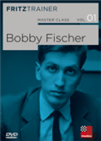America’s chess teacher
“Never boring”. These two words are enough for John Donaldson to characterise Jeremy Silman. They had known each other since 1981. Silman had moved to San Francisco from Texas when he was 19. It was It was the early seventiesand the time of demonstrations against the Vietnam War, drugs, free love — and Bobby Fischer, who was fighting the Soviets in Reykjavík. America discovered chess. Silman showed talent, became a National Master in a short time, won his first cash prizes, gave chess lessons, made friends.
An important meeting place at the end of the seventies were the Opens in Lone Pine, which was a seven-hour drive east of San Francisco. It was there that Jon Tisdall met Silman. “I always enjoyed his company, but I haven't had the pleasure nearly often enough”. Tisdall moved to Norway, Silman to Los Angeles. Two decades later, both wrote books that changed how chess is taught: personally, honestly, with a dash of irony. While Tisdall’s Improve Your Chess Now was critically acclaimed and sold well, Silman’s How to Reassess Your Chess and The Amateur’s Mind were eye-openers.

Jeremy Silman with Judit Polgar and Yasser Seirawan
He did not orientate himself on the games of the grandmasters but on those of his chess students. Why hadn’t anyone written before about why we blunder, how to avoid it, and how to understand a position from the imbalances? Later, Alex Yermolinsky and Jonathan Rowson refined the genre, but that was already aimed at more sophisticated players.
 No other World Champion was more infamous both inside and outside the chess world than Bobby Fischer. On this DVD, a team of experts shows you the winning techniques and strategies employed by the 11th World Champion.
No other World Champion was more infamous both inside and outside the chess world than Bobby Fischer. On this DVD, a team of experts shows you the winning techniques and strategies employed by the 11th World Champion.
Grandmaster Dorian Rogozenco delves into Fischer’s openings, and retraces the development of his repertoire. What variations did Fischer play, and what sources did he use to arm himself against the best Soviet players? Mihail Marin explains Fischer’s particular style and his special strategic talent in annotated games against Spassky, Taimanov and other greats. Karsten Müller is not just a leading international endgame expert, but also a true Fischer connoisseur.His wife, Gwen Feldman, founded the publishing house Silman-James Press in Los Angeles in 1990 with a partner named James Fox. He mainly published film books. Now chess was added under the imprint Siles. Further bestsellers followed with Silman’s Complete Endgame Course and The Complete Book of Chess Strategy. The four titles mentioned above alone sold well over half a million copies and were translated many times.

Jeremy Silman with the Polgar sisters
In his late forties, Silman stopped playing tournaments and could choose who he still gave lessons to. One of the requests came from the Persian Gulf. A sheikh had him flown to Abu Dhabi. If you only counted the time spent together at the chessboard, he came up with an hourly rate of over a thousand dollars, he told me when I visited him in 2006. It was a highly entertaining afternoon, but not an interview, and I didn't take notes. With Gwen, he lived in a mansion in the east of Hollywood. The décor was not dominated by film memorabilia, as I had expected, but by Asiatics. Their mutual interest culminated in Asian films and in Japan, where they later lived for some time.
Apart from his lauded textbooks, Silman wrote some classic opening works and helped Pal Benkö with his memoirs.

Pal Benkö, Jeremy Silman and Ron Gross
Silman was brought in as a consultant for the film Harry Potter and the Philosopher’s Stone. Those who saw the chess scene and did not find it coherent can read in his contribution to The Leaky Cauldron how he had planned it and what was made of it.
In Silman’s Chess Odyssey, published in 2022, he shared personal memories, mixed with portraits of players he met or admired. He also wrote hundreds of columns for chess.com. When he stopped doing that three years ago to devote himself to other things in life, friends suspected he was not doing well. He died on September 21 after a long illness, the US Chess Federation announced on Twitter: “He was truly America’s chess teacher”.
Obituaries
























